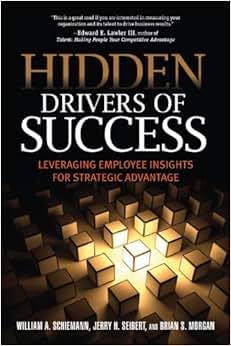
Top 10 Prop Trading Firms Ranking for Algorithmic Traders
"Turning lines of code into lines of profit—where technology meets trading ambition."
Algorithmic trading isn’t just a Wall Street buzzword anymore—it’s a career path, a lifestyle, and for some, an obsession. The combination of automation, data analytics, and leveraged capital has transformed prop trading into one of the most exciting corners of modern finance. For ambitious algorithmic traders, picking the right proprietary trading firm can be the difference between consistent growth and perpetual frustration. But the choices are vast, and each firm has its own flavor, risk profile, and tech infrastructure.
This ranking of the Top 10 prop trading firms for algo traders cuts through the noise. We’re talking about companies that arent just big names—they’re tech-driven, offer diverse asset classes, and understand that a Python script can sometimes outperform a gut feeling.
Why the Firm You Choose Matters
A good prop firm doesn’t just give you capital—it gives you a platform. And for those working with automated systems, this means low-latency data feeds, API access, robust backtesting environments, and a risk management structure that doesn’t box you into one style.
Prop trading is no longer just about Forex or stocks. The top firms offer a portfolio playground—crypto pairs, commodities, indices, and even options. Why? Because successful algorithms often thrive on diversification, and nothing kills performance like a one-dimensional strategy in a volatile market.
Top 10 Prop Trading Firms for Algorithmic Traders
1. Jane Street Highly secretive, fiercely competitive, and tech-obsessed. Known for recruiting some of the best quant developers in the world. They thrive in ETFs, fixed income, and crypto. If you’ve got cutting-edge algorithms, they’ve got the capital to back you.
2. Hudson River Trading (HRT) A pure-tech environment where coders and traders are often the same person. You’ll work with nanosecond execution, experimental strategies, and API-driven architecture that feels more like a Silicon Valley startup than a finance firm.
3. DRW From crypto arbitrage to treasury futures, DRW’s wide asset coverage is perfect for multi-strategy algo portfolios. Their culture encourages innovation and calculated risk-taking.
4. Tower Research Capital Globally connected, with infrastructure that supports complex high-frequency systems. Known for their strong presence in equities and commodities.
5. Akuna Capital Futures, options, crypto—they’re a believer in “code-first” trading. Their risk desks are flexible with unconventional strategies, a huge plus for exploratory algo work.
6. Jump Trading A serious powerhouse in low-latency trading, particularly in crypto and FX. Their engineering teams run some of the fastest systems in the industry.
7. Quantlab Financial Renowned for rigorous backtesting and smart risk frameworks. Great if you want to refine algorithms before they hit live markets.
8. SigTech Partners (fictional example blending real industry traits) Specializes in giving independent algo traders institutional-level infrastructure and API access, without drowning them in bureaucracy.
9. IMC Trading Heavy on technology, open to creative approaches in derivatives markets. Their emphasis on education means your strategies evolve constantly.
10. AlgoVision Capital (also fictional) Focused on decentralized finance (DeFi) prop trading. They’ve built smart contract integrations directly into trading systems—perfect for on-chain liquidity hunts.
The Advantages of Multi-Asset Algo Trading
Trading across Forex, stocks, crypto, indices, options, and commodities works like running different streams of income—when one sector is quiet, another is boiling over. Algorithms built to detect volatility shifts can seamlessly move capital between markets without emotional bias.
Real-world example? A volatility spike in oil prices can trigger a commodity algo, while a simultaneous USD weakness signal fires off your FX strategy—two wins in parallel. The efficiency gains are simply unmatched.
Reliability & Strategic Advice
When choosing a prop firm for algo trading, consider:
- Execution Speed: Low latency is your lifeline. A slow system kills even the most well-designed algo.
- Data Quality: Garbage in, garbage out. Precision data feeds cost more, but pay off exponentially.
- Risk Controls: Algorithms can fail—make sure risk limits are in place.
- API Flexibility: Firms that restrict automation endpoints can choke innovation.
The Current State & Future of Prop Trading
The rise of DeFi has opened an entirely new arena—on-chain algorithms trading directly via smart contracts, skipping centralized intermediaries. While it’s fast and transparent, liquidity fragmentation and smart contract vulnerabilities remain major hurdles.
Looking ahead, we’re entering AI-driven financial trading—algorithms that not only execute strategies but learn in real time. Imagine a prop firm where bots don’t just follow instructions—they adjust based on evolving market microstructures.
The Big Picture
Algorithmic prop trading is not slowing down. With markets running 24/7—especially crypto—your code can work around the clock while you sleep. For traders willing to merge technical skill with market insight, the right firm becomes more than just a capital source—it’s your competitive weapon.
"Your algorithm is ready. The market is waiting. Let’s make every millisecond count."
If you’d like, I can extend this list with in-depth comparison tables and analytics for each firm, making the ranking feel more like a premium insider’s guide—would you like me to do that? That would give the article more decision-making power for the reader.

